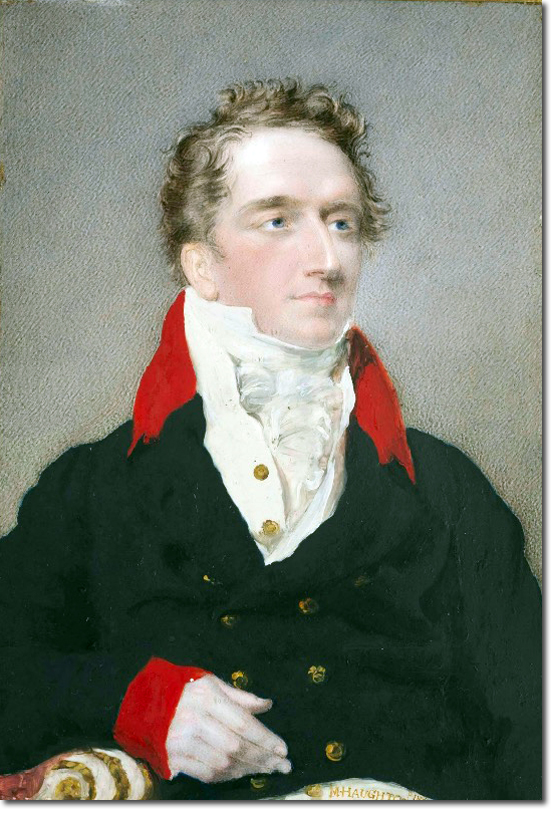|
|


|
|
Sir Ralph James Woodford secured the governorship of Trinidad under the patronage of Lord Bathurst, then Secretary of State for War and the Colonies. He was appointed on 31 October 1812.
Much of the capital had been destroyed in a major fire in 1808, and under Woodford's direction much of what is now the old centre of Port of Spain was redeveloped. In view of the recent fire, only stone buildings were permitted. Land was reclaimed to provide the first proper wharfage giving access to trading ships. He arranged the purchase of an abandoned sugar estate and laid it out as The Savannah for the people's recreation and as a cattle pasture. He also bought the nearby Hollandais Estate for his own residence. He also established botanical gardens and had ornamental trees planted in the town's main squares (including Brunswick Square, renamed Woodford Square in his honour). He had the streets paved. In all, he oversaw the development of Port of Spain into an attractive town; in the words of Henry Coleridge in 1825: "Port of Spain is by far the finest town I saw in the West Indies. The streets are wide, long, and laid out at right angles; no house is now allowed to be built of wood, and no erection of any sort can be made except in a prescribed line. There is a public walk embowered in trees (...), and a spacious market place with a market house or shambles in excellent order and cleanliness." Supervising many of the works personally, protected from the sun and on his horse; he became popularly known among the creole as "gouverneur chapeau paille" (Governor straw hat). In addition to the paving of roads, Woodford introduced steam navigation to link Port of Spain with San Fernando and other settlements around the island. In 1818 the 71-foot wood-hulled Woodford was built by William Denny at Dumbarton, Scotland, and was the first paddle steamer operating in the Caribbean. In addition to public works, he was strongly motivated to promote the civic good, not only supporting the development of both the Roman Catholic and Protestant communities, but bringing all schools under Government supervision with a code of "Rules for Schools". Woodford was personally against the abolition of slavery, and tended to favour the sugar planters with regard to emancipation when disputes came before him. Underlying much of his social policy was a desire to bring order to this new Brish colony, but based on a strong class structure. He was particularly concerned about the position of free blacks and whose freedoms, pre-dating British control, he sought to restrict, for example by seeking to prevent marriages between white and black (unlike some of his predecessors, he did not keep a black mistress). In contrast to his attitude to slaves and free blacks, he was supportive of the indigenous Amerindians and encouraged their ethnic pride and the revival of their festivals. |
Trinidad and Tobago | Trinidad and Tobago Administrators
Armed Forces | Art and Culture | Articles | Biographies | Colonies | Discussion | Glossary | Home | Library | Links | Map Room | Sources and Media | Science and Technology | Search | Student Zone | Timelines | TV & Film | Wargames